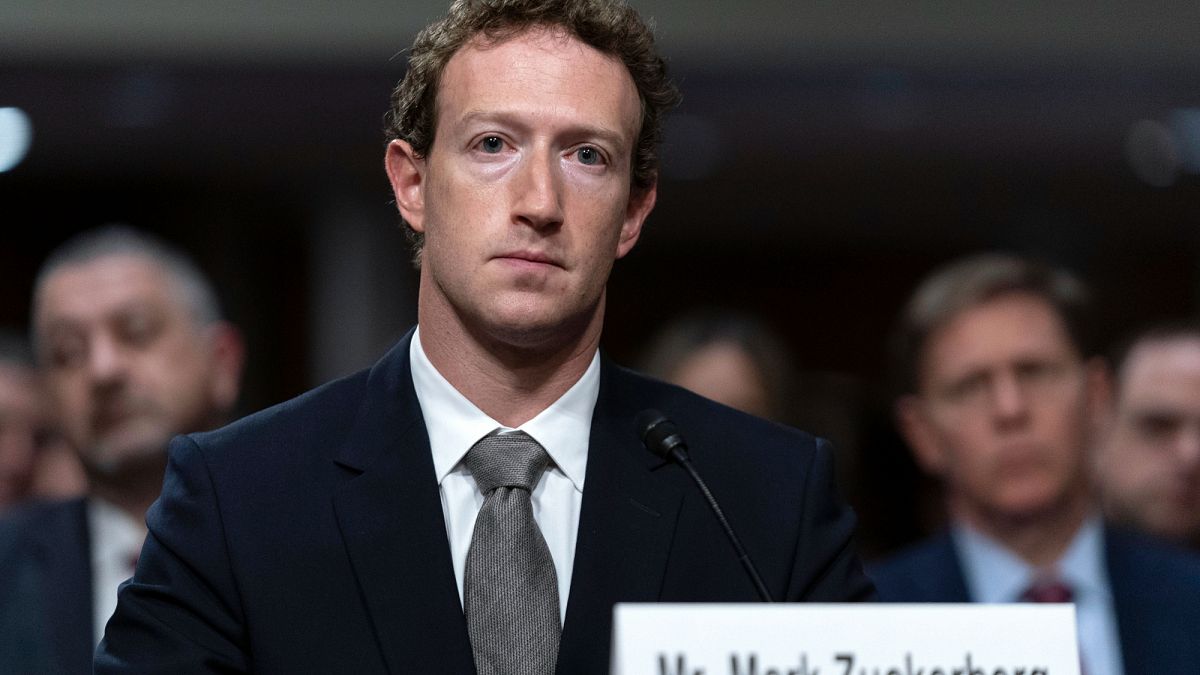Meta CEO Mark Zuckerberg defended his company against allegations that it monopolises the social media market on the first day of an antitrust trial in the United States.
Meta could be forced to sell popular social media sites Instagram and WhatsApp which it acquired more than a decade ago.
In opening statements, Daniel Matheson, an attorney for the US Federal Trade Commission (FTC) said Meta was “erecting a moat” to protect its interests by buying the two startups and used its position to generate enormous profits.
Zuckerberg said that he was “not happy” with a perceived lack of progress on developing a photo-sharing app to compete with Instagram because of its rapid growth in response to questions from Matheson.
“That does seem to be what I’m highlighting,” Zuckerberg said, adding that he’s always urging his teams to do better.
Zuckerberg said he “didn’t have the full timeline of Instagram’s development in [his] head” when asked later in the day by Matheson about how fast the app was growing.
Meta ended up “investing a ton” in the app after it was acquired in 2012, Zuckerberg continued, refuting claims by Matheson that the app wouldn’t be invested in.
‘It is better to buy than compete’
The main argument from the FTC is that Meta maintained a monopoly by pursuing Zuckerberg’s strategy, “expressed in 2008: ‘It is better to buy than compete.’
True to that maxim, the FTC says that Meta has “systematically tracked potential rivals and acquired companies that it viewed as serious competitive threats.”
The $750 million (€659.5 million) Instagram acquisition that Meta, formerly Facebook, made was the first where the the company kept its competitor running as a separate app.
Before then, Facebook was known for smaller “acqui-hires,” where a company purchases a start-up to hire its talented workers and shuts the acquired company down.
Two years later, it did it again with the messaging app WhatsApp, which it purchased for $22 billion (€19 billion).
WhatsApp and Instagram helped Facebook move its business from desktop computers to mobile devices, and to remain popular with younger generations as rivals like Snapchat (which it also tried, but failed, to buy) and TikTok emerged.
However, the FTC has a narrow definition of Meta’s competitive market, excluding companies like TikTok, YouTube, and Apple’s messaging service from being considered rivals to Instagram and WhatsApp.
A ‘grab bag’ of arguments
Mark Hansen, an attorney for Meta, said the FTC was making a “grab bag” of arguments that were wrong. He said Meta has plenty of competition and has made improvements to the startups it acquired.
“This lawsuit, in summary, is misguided,” Hansen said, adding: “anyway you look at it, consumers have been the big winners”.
Meta, meanwhile, says the FTC’s lawsuit “defies reality”.
“The evidence at trial will show what every 17-year-old in the world knows: Instagram, Facebook and WhatsApp compete with Chinese-owned TikTok, YouTube, X, iMessage and many others,” a statement to the Associated Press reads.
“Regulators should be supporting American innovation, rather than seeking to break up a great American company and further advantaging China on critical issues like AI,” the statement continued.
In a filing last week, Meta also stressed that the FTC “must prove that Meta has monopoly power in its claimed relevant market now, not at some time in the past”.
This, experts say, could also prove challenging since more competitors have emerged in the social media space in the years since the company bought WhatsApp and Instagram.
Meta isn’t the only technology company in the sights of federal antitrust regulators, Google and Amazon face their own cases.
The remedy phase of Google’s case is scheduled to begin on April 21. A federal judge declared the search giant an illegal monopoly last August.

